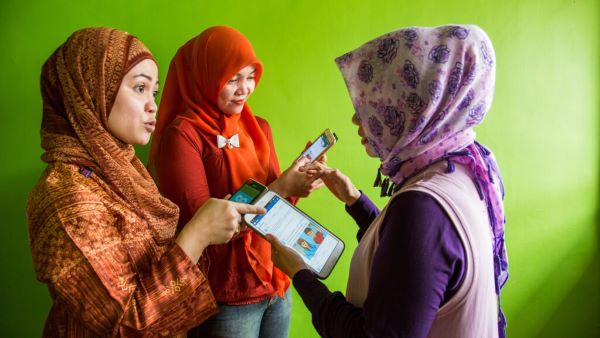The Bill & Melinda Gates Foundation has pledged $2.5 billion over the next five years to transform women’s health globally. Announced on Monday, the investment is the foundation’s largest single commitment to female-focused health innovation and comes at a time of sharp declines in U.S. and global funding for reproductive and maternal care.
The new initiative aims to catalyze research and development for over 40 innovations addressing conditions that disproportionately affect women, especially in low- and middle-income countries.
A glaring gap in global health
Despite progress in maternal and reproductive health, experts warn that female-specific conditions — such as menopause, preeclampsia, heavy menstrual bleeding, and endometriosis — continue to receive less than 1% of non-cancer medical research funding globally.
At the same time, many reproductive health programs across Africa, Asia, and Latin America are experiencing serious setbacks due to declining U.S. foreign aid, restructuring of key agencies, and shifting donor priorities.
The Gates Foundation’s new pledge seeks to counter that trend with a data-driven, equity-focused model centered on innovation, affordability, and access.
Focus areas: Five pillars of women’s health innovation
The $2.5 billion will support innovations across five key areas:
- Obstetric care and maternal immunization
- Maternal nutrition and general health
- Menstrual and gynecological health
- Next-generation contraceptive methods, including non-hormonal options
- Diagnosis and treatment for sexually transmitted infections (STIs)
Products currently under development include AI-powered portable ultrasound tools that require minimal training, extended-release injectable contraceptives, and new diagnostics for preeclampsia and vaginal microbiome disorders.
A global call to action
Dr. Anita Zaidi, President of the Gates Foundation’s Gender Equality Division, emphasized the scale of the problem:
“Too many women still die from preventable causes or live in poor health. That must change — but we can’t do it alone.”
Bill Gates, co-chair of the foundation, stated that investing in women’s health has widespread benefits:
“It leads to healthier families, stronger economies, and a more just world. This is a moral imperative and a smart investment.”
Dr. Ru-fong Joanne Cheng, Director of Women’s Health Innovations at the foundation, added that while the $2.5 billion is a major step, it only scratches the surface of what is needed:
“This is a sector that has been chronically underfunded and underestimated. Our investment is a start, not a finish.”
Real-world impact: Addressing urgent global needs
The investment is particularly crucial for countries in sub-Saharan Africa and South Asia, where maternal mortality rates remain high, and where access to contraceptives, diagnostics, and skilled care is limited.
Conditions like endometriosis — which affects 1 in 10 women worldwide — have historically received minimal attention. In the United States, funding for endometriosis research amounted to just $13 million in 2019 — less than $1 per patient.
The foundation’s new initiative aims to reduce this disparity through targeted partnerships, low-cost technology deployment, and data-led policy reforms.
What comes next?
The Gates Foundation has called on governments, biotech companies, philanthropic organizations, and local innovators to join the push to elevate women’s health in global health agendas.
As part of its long-term strategy, the foundation intends this initiative to serve as a springboard for larger systemic change, including:
- Scaling successful pilot programs through public-private partnerships
- Supporting locally led R&D hubs
- Encouraging domestic investment in maternal and reproductive health
The $2.5 billion investment also aligns with the foundation’s 20-year “spend-down” strategy, which involves redistributing its resources into high-impact, time-sensitive global priorities before the foundation winds down its operations.
Conclusion: A milestone moment for women’s health
The Gates Foundation’s announcement has been welcomed by public health leaders and women’s rights advocates as a long-overdue step toward rectifying a deeply entrenched gender bias in global health funding.
Whether this investment leads to real change, however, will depend on how it is implemented — and whether other actors follow suit.
In a world where women’s health is still too often treated as secondary, this initiative could mark a defining shift — from neglect to empowerment, from silence to solutions.


